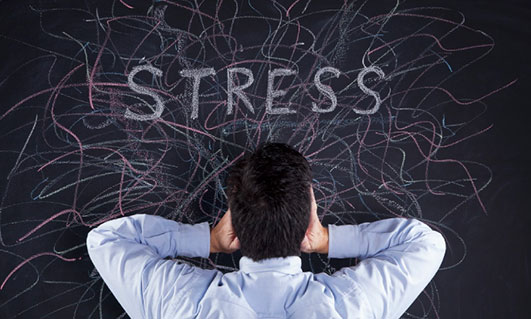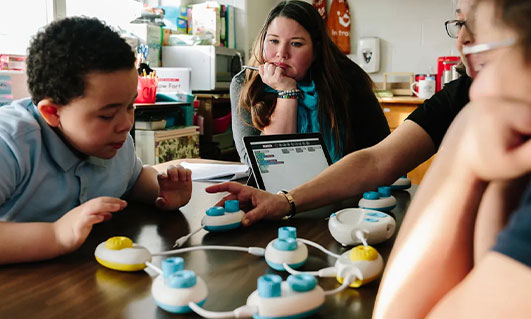
Adjusting to life after vision loss can be challenging, and many individuals experience feelings of depression and anxiety during this transition. While these emotions are natural responses to such a significant change, there are practical coping strategies that can help. Here, we’ll explore ways to manage these emotions, build resilience, and foster a positive outlook on life after vision loss.
Understanding Depression and Anxiety After Vision Loss
Vision loss can lead to various emotional responses, including shock, anger, sadness, and fear. Depression and anxiety are particularly common, as individuals may feel isolated or overwhelmed by the challenges of adjusting to their new reality. Recognizing these emotions and understanding that they are valid is a crucial first step toward managing them.
Practical Coping Strategies for Managing Depression and Anxiety
Seek Support from Others: Building a support network of friends, family, and peers can make a significant difference. Consider joining support groups for visually impaired individuals, either in-person or online. Connecting with others who understand your experience can provide comfort, guidance, and a sense of belonging.
Engage in Therapy or Counseling: Professional mental health support, such as therapy or counseling, can be incredibly beneficial. Therapists can help you develop personalized coping strategies, address negative thoughts, and work through feelings of grief. Cognitive Behavioral Therapy (CBT) is particularly effective for managing depression and anxiety by helping you reframe unhelpful thinking patterns.
Practice Mindfulness and Relaxation Techniques: Mindfulness meditation, deep breathing exercises, and progressive muscle relaxation can reduce stress and anxiety. These practices help you focus on the present moment and cultivate a sense of calm. Apps designed for accessibility, like Headspace and Calm, offer audio-guided meditations that make mindfulness practice easier.
Establish a Daily Routine: Maintaining a routine provides structure and a sense of purpose. Incorporate activities you enjoy and make time for exercise, as physical activity can boost mood and reduce anxiety. Simple tasks like making the bed, preparing meals, or taking a walk can provide a sense of accomplishment and help combat feelings of depression.
Set Realistic Goals: Setting small, achievable goals can help you rebuild confidence and regain a sense of control over your life. Start with tasks like organizing your living space or learning to navigate a familiar area. As you reach these goals, gradually take on new challenges, which can improve self-esteem and reduce feelings of helplessness.
Explore Assistive Technology: Utilizing assistive devices can make daily activities easier and more manageable. Screen readers, magnification software, and voice-activated assistants can help you maintain independence and stay connected. Learning to use these tools may also provide a sense of accomplishment and help alleviate anxiety about managing tasks on your own.
Engage in Hobbies and Creative Activities: Rediscovering hobbies or exploring new interests can be an effective way to cope with depression and anxiety. Whether it’s painting, music, writing, or cooking, creative activities provide an outlet for self-expression and help shift your focus away from negative thoughts.
Take Care of Your Physical Health: Prioritizing good sleep, nutrition, and regular physical activity can significantly impact mental well-being. Eating balanced meals and getting enough rest can improve energy levels and mood, while regular exercise releases endorphins, which are natural mood lifters.
Challenge Negative Thoughts: It’s common to have negative thoughts after experiencing vision loss, but learning to challenge these thoughts can improve your outlook. When you notice a negative thought, ask yourself if it’s based on facts or assumptions, and try to reframe it in a more positive or realistic way.
Celebrate Progress and Small Wins: Acknowledge your progress, no matter how small. Recognizing your achievements helps reinforce a positive mindset and builds resilience. Even minor improvements can serve as reminders of your strength and adaptability.
When to Seek Professional Help
If feelings of depression or anxiety persist and begin to interfere with daily life, seeking professional help is essential. A mental health professional can offer tailored support and strategies to help you cope. In some cases, medication may also be recommended to manage symptoms effectively.
Conclusion
Managing depression and anxiety after vision loss is a journey that requires patience, self-compassion, and persistence. By building a strong support network, practicing mindfulness, setting achievable goals, and embracing assistive technology, you can develop effective coping strategies to enhance your well-being. Remember, you are not alone, and with the right resources and strategies, it is possible to navigate life after vision loss with resilience and hope.





